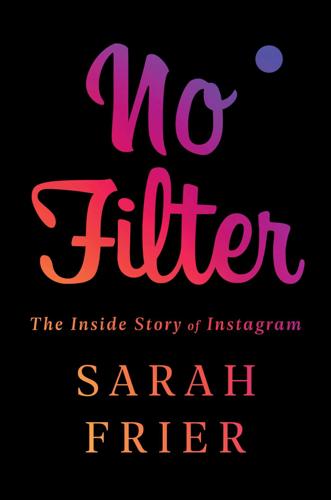
No Filter: The Inside Story of Instagram
by
Sarah Frier
Published 13 Apr 2020
Shruti Shah, Alexia Bonastos, and Sarah Seegal were friendly faces at The Wing when I was in my most desperate writing stages. I am a business journalist in the first place because of Chris Roush and Penelope Abernathy, who at UNC taught me to think critically about how corporations work. Penny told me I’d be writing a book within five years of graduation. Sorry to miss the deadline! If journalism is the first rough draft of history, books build on that important work to propose a second draft. I’m grateful to all the reporters who asked questions of Instagram throughout the years, and to the people who continue to cover its impact on our society and culture, and its place within Facebook. Reporters have been cited in the endnotes if their work found a second life in these pages.
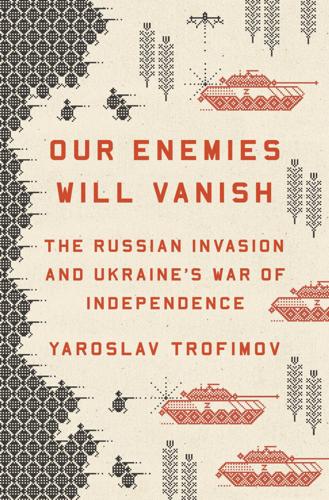
Our Enemies Will Vanish: The Russian Invasion and Ukraine's War of Independence
by
Yaroslav Trofimov
Published 9 Jan 2024
Last but not least, my resilient partner, Agata, has had to put up with my doing two wars back-to-back, and was always full of sage advice, on this book’s contents and the cover design. Thank you. Note to Readers Journalism, as Washington Post publisher Philip L. Graham noted in the 1960s, is the first rough draft of history. This book is the second draft of the history of the full-out Russian war against Ukraine, spanning the first decisive year of the conflict. I had the opportunity to revisit events that I had witnessed, talking to participants weeks and months later, at a time when they could tell me some of the things that had been secret before.
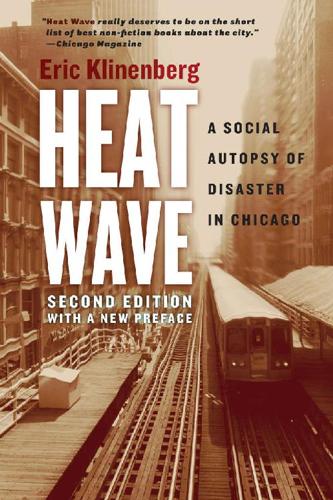
Heat Wave: A Social Autopsy of Disaster in Chicago
by
Eric Klinenberg
Published 11 Jul 2002
The hurried process allows little time for thinking critically or analytically about the interviews or the event, and if reporters revert to conventional frames and story ideas when they write their articles or submit their notes to lead writers it is in part because the system of daily news production constrains their capacity to make sense of the conditions they see. Invoking a journalistic truism, reporter Robert Becker contended that he and his newspaper colleagues do not try to provide definitive answers to difficult questions because “what we do is write rough drafts of history. Someone will come in after us and finish the job.” “We didn’t do a lot of charts and statistical data,” recalled Gerould Kern, an associate managing editor during the heat wave, “because it was not a scientific study and we weren’t presenting it as that.” Instead, Kern explained, Tribune writers tried to depict the heat wave as “a human story and a medical science story,” so they were “looking for good storytelling” more than systematic knowledge.
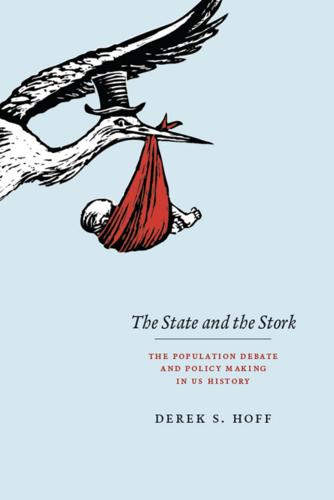
The State and the Stork: The Population Debate and Policy Making in US History
by
Derek S. Hoff
Published 30 May 2012
Also see Paul Paddock and William Paddock, Famine—1975! America’s Decision: Who Will Survive? (Boston: Little, Brown and Company, 1967); and Arthur Hopcraft, Born to Hunger (Boston: Houghton Mifflin, 1968). 52. Roy Beck and Leon Kolankiewicz, “The Environmental Movement’s Retreat from Advocating U.S. Population Stabilization (1970–1998): A First Draft of History,” Journal of Policy History 12 (January 2000), 152 n. 4, lists leading ecologists. 53. For environmental economics, see Peter Hay, Main Currents in Western Environmental Thought (Bloomington: Indiana University Press, 2002), chap. 8. For a quick overview, see Paul Krugman, “Green Economics,” New York Times Magazine, April 11, 2010. 54.
…
Critchlow, Intended Consequences: Birth Control, Abortion, and the Federal Government in Modern America (New York: Oxford University Press, 1999), asserts, “The continuing decline in the American birthrate belied the urgency of the [Rockefeller] commission” (148). 7. See, for example, Roy Howard Beck and Leon J. Kolankiewicz, “The Environmental Movement’s Retreat from Advocating U.S. Population Stabilization 330 notes to chapter seven (1970–1998): A First Draft of History,” Journal of Policy History 12 (January 2000): 123–56. 8. Among many others, Connelly, Fatal Misconception, argues that a resilient eugenic mindset eroded the population movement’s political capital. Eugenic ideas did survive as a motivating force on the modern population movement, but as I have argued throughout this study, they were less important than other impulses, such as a genuine concern with ecological crisis and a philanthropic desire to lessen poverty and hasten development in the Third World. 9.
…
During the 1970s, immigrants had higher birthrates than non-immigrants, African Americans had higher rates than whites, and Hispanic whites had higher rates than non-Hispanic whites (the last being the only group that dipped below the replacement level). See Roy Howard Beck and Leon J. Kolankiewicz, “The Environmental Movement’s Retreat from Advocating U.S. Population Stabilization (1970–1998): A First Draft of History,” Journal of Policy History 12 (January 2000),” 153 n. 22; pp. 131 and 140 for the growing avoidance of the population issue, especially by liberal interest groups. 30. During the 1970s, American women delayed marriage longer and had fewer total children than previous cohorts. See Teitelbaum and Winter, Fear of Population Decline, 82.
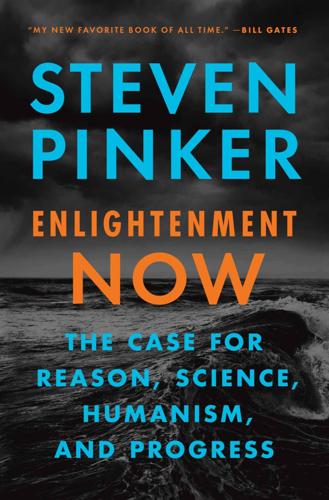
Enlightenment Now: The Case for Reason, Science, Humanism, and Progress
by
Steven Pinker
Published 13 Feb 2018
YouGov poll, Jan. 5, 2016, https://yougov.co.uk/news/2016/01/05/chinese-people-are-most-optimistic-world/. The United States on the wrong track: Dean Obeidallah, “We’ve Been on the Wrong Track Since 1972,” Daily Beast, Nov. 7, 2014, http://www.pollingreport.com/right.htm. 9. Source of the expression: B. Popik, “First Draft of History (Journalism),” BarryPopik.com, http://www.barrypopik.com/index.php/new_york_city/entry/first_draft_of_history_journalism/. 10. Frequency and nature of news: Galtung & Ruge 1965. 11. Availability heuristic: Kahneman 2011; Slovic 1987; Slovic, Fischof, & Lichtenstein 1982; Tversky & Kahneman 1973. 12. Misperceptions of risk: Ropeik & Gray 2002; Slovic 1987.
…
As long as bad things have not vanished from the face of the earth, there will always be enough incidents to fill the news, especially when billions of smartphones turn most of the world’s population into crime reporters and war correspondents. And among the things that do happen, the positive and negative ones unfold on different time lines. The news, far from being a “first draft of history,” is closer to play-by-play sports commentary. It focuses on discrete events, generally those that took place since the last edition (in earlier times, the day before; now, seconds before).9 Bad things can happen quickly, but good things aren’t built in a day, and as they unfold, they will be out of sync with the news cycle.
…
A spate of news about rape cannot tell us whether there is now more violence against women, a bad thing, or whether we now care more about violence against women, a good thing. And to this day it is unclear whether the Orlando nightclub massacre was committed out of homophobia, sympathy for ISIS, or the drive for posthumous notoriety that motivates most rampage shooters. Better first drafts of history can be gleaned from data on values and from vital statistics. The Pew Research Center has probed Americans’ opinions on race, gender, and sexual orientation over the past quarter century, and has reported that these attitudes have undergone a “fundamental shift” toward tolerance and respect of rights, with formerly widespread prejudices sinking into oblivion.7 The shift is visible in figure 15-1, which plots reactions to three survey statements that are representative of many others.

Enemies and Neighbours: Arabs and Jews in Palestine and Israel, 1917-2017
by
Ian Black
Published 2 Nov 2017
Political science, sociology, geography and cultural studies have all enriched understanding too, though the terminology used can often be dense. I greatly enjoyed an article entitled ‘The ingathering of (non-human) exiles: the creation of the Tel Aviv Zoological Garden animal collection, 1938–1948’ – an unusual angle on cultural aspects of state formation.2 Journalism remains an indispensable ‘first rough draft of history’ that can sometimes turn out to be impressively close to later, more polished versions. Arguably I learned as much reporting from the streets of Nablus and Gaza during the first intifada as from poring over declassified files or old newspapers in archives in Jerusalem and London – as well as from simply talking to people on both sides of an often impassable national divide.
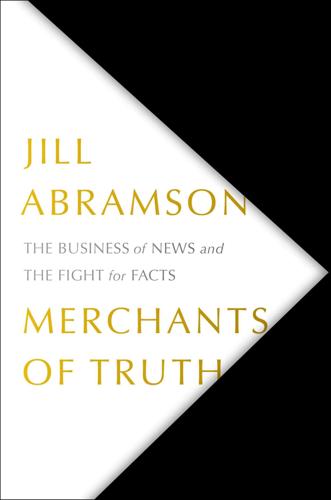
Merchants of Truth: The Business of News and the Fight for Facts
by
Jill Abramson
Published 5 Feb 2019
Scattered throughout the room were representatives of the Washington Post, which had won 47, the second-most. Their stories over the years had chronicled Watergate, the Pentagon Papers, war zones, terrorism, financial scandal, poverty, political corruption, civil rights, China, Russia, and on and on. The “first rough draft of history,” popularized by Phil Graham, scion of the family that owned the Post, had become a self-congratulatory cliché, but for this body of journalism’s most honored work, it was true. Arthur Ochs Sulzberger Jr., the Times’s publisher since 1992, took immense pride in the announcement of the Pulitzers each spring, just as his father had.
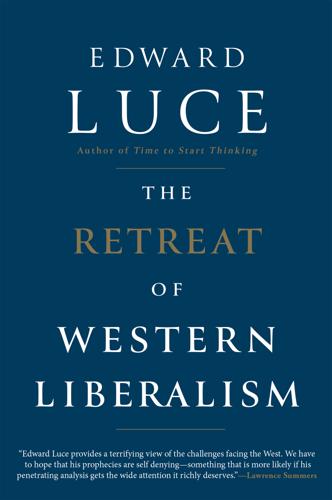
The Retreat of Western Liberalism
by
Edward Luce
Published 20 Apr 2017
. —— A health warning: journalists have a habit of labelling things, which is a trait they share with historians. While the latter take their time to brand the past – the age of steam, the rise of the West, the birth of the modern, and so on – journalists do so without drawing breath. It is in the nature of the business. We flatter ourselves that we rush out the first draft of history. My profession is thus liable to over-interpret the latest big thing. Moreover, we have an annoying habit of designating what we failed to predict as serenely inevitable in hindsight. It was destined to happen all along. I have been guilty of this. As you read these pages, please bear in mind that Brexit was not destined to happen.
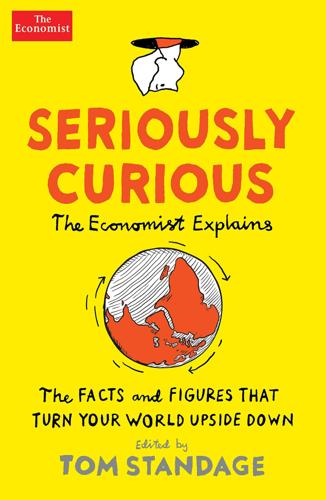
Seriously Curious: The Facts and Figures That Turn Our World Upside Down
by
Tom Standage
Published 27 Nov 2018
But think-tanks really blossomed in the second half of the 20th century. Researchers at the University of Pennsylvania reckon there are now nearly 7,000 of them worldwide. In essence, think-tanks aim to fill the gap between academia and policymaking. Academics grind out authoritative studies, but at a snail’s pace. Journalists’ first drafts of history are speedy but thin. A good think-tank helps the policymaking process by publishing reports that are as rigorous as academic research and as accessible as journalism. (Bad ones have a knack of doing just the opposite.) They flourished in the 20th century for two reasons. Governments were expanding everywhere, meaning there was lots of demand for policy expertise.
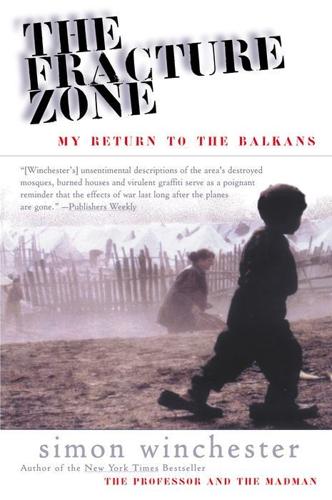
The Fracture Zone: My Return to the Balkans
by
Simon Winchester
Published 16 Oct 2000
I wrote ever more furiously, well aware that they would be coming back. I managed, typing the last line with a flourish and then, presto! the power came back on, my cell phone came back to life, and I was able to telephone London and be put through to a copy-taking center nearby, and dictate those two thousand hurriedly written, ill-thought-out words. The first draft of history, as teachers have been known to call journalism, can be a sketchy thing indeed. But then I found myself dictating the piece to a copy taker who, after taking down the first few paragraphs, confessed that he was more interested than usual, on that rainy English afternoon, to be hearing firsthand what was going on in the capital of Kosovo.
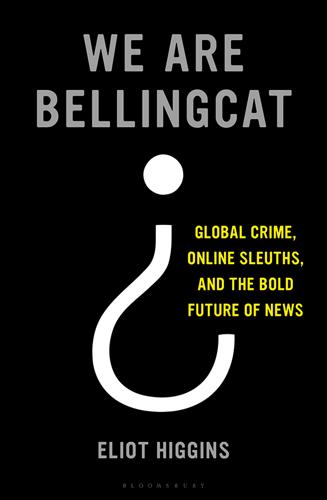
We Are Bellingcat: Global Crime, Online Sleuths, and the Bold Future of News
by
Eliot Higgins
Published 2 Mar 2021
Artillery and tank shells killed some of these, but most had been executed.30 The government blamed ‘terrorists’.31 In response, the United States, Britain and other nations expelled Syrian diplomats.32 A later UN investigation confirmed that the Syrian government and shabiha had committed crimes against humanity, including murder, torture, indiscriminate attacks against civilians and sexual violence. These atrocities pointed ‘to the involvement at the highest levels of the armed and security forces and the government’,33 the UN inquiry said. But at the time facts were bitterly disputed online – a pattern that followed every outrage in the Syrian civil war. Newspapers were not the first draft of history anymore; social media was. And everyone there was shouting. In parallel to my community of fact-finding obsessives were partisans who denounced any contradiction of their worldview, an approach that I had first encountered when dealing with the Libyan uprising. Several such characters found platforms in the propaganda arms of the pro-Gaddafi press.
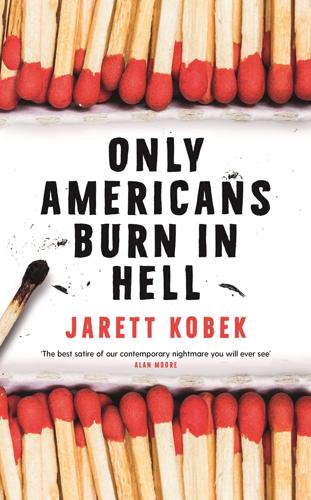
Only Americans Burn in Hell
by
Jarett Kobek
Published 10 Apr 2019
Here was the genius of Drudge laid bare: he understood, before anyone else, that the way to make money on the Internet was by monetizing other people’s content. After Drudge shattered journalism, the international capitalist class gathered up the fragments and ground them into dust. The noble profession transformed from attempts at a first draft of history into a quest for eyeballs on websites. In the process, seasoned professionals lost their jobs and were replaced with cocaine-addled children from Brooklyn who worked for spare change. The international capitalist class didn’t care. Journalism had always been a pain in their ass. What they wanted was traffic on the websites that they’d funded.
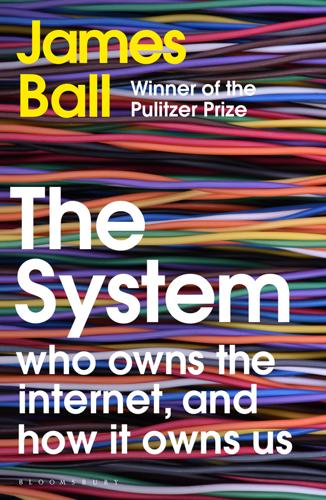
The System: Who Owns the Internet, and How It Owns Us
by
James Ball
Published 19 Aug 2020
Finally, when the formal safeguards of society – regulators, lawmakers and the courts – fail to keep up with change, fail to act for some other reason, or even fail to see a problem, there are supposed to be informal mechanisms in society that step up to the bar and help at least highlight problems and hold power to account. Two of the most obvious of these are academia and journalism. One is supposed to research the issues in depth; the other serves as a ‘first draft of history’, an occasionally crude attempt to draw attention to what might be wrong. In both cases, it can certainly be argued that sceptical coverage and scrutiny of technology has increased – but it can also be argued that the sector has done brilliantly in neutralising these watchdogs. One way is simply through telling a good story that reporters want to hear – the scrappy upstart, the disruptor, the college dropout who built a business and showed everyone who knew best.
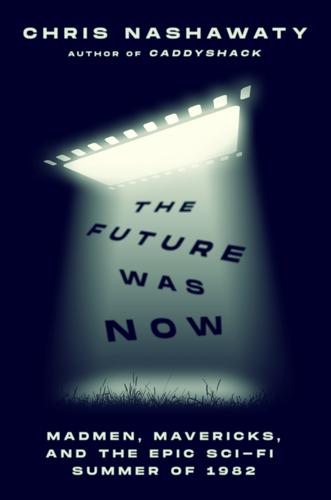
The Future Was Now: Madmen, Mavericks, and the Epic Sci-Fi Summer Of 1982
by
Chris Nashawaty
Today, a little more than four decades later, it also seems important to point out another lesson of the summer of 1982: that financial success or failure in the moment only matters in that moment. Box office postmortems like the one that the Times’ Aljean Harmetz produced in the wake of 1982 are merely the first drafts of history—fleeting statistical snapshots that in no way correspond with how a film will be evaluated (or reevaluated) in the years and decades to follow. In time, they often feel as dated as the yellowing paper they were printed on. In the early ’80s, this was about to become truer than ever. In 1983, video cassette recorders could be found in just 10 percent of American households.
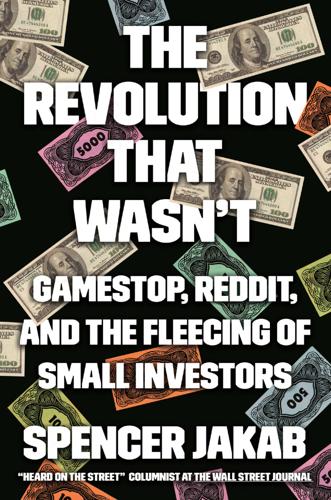
The Revolution That Wasn't: GameStop, Reddit, and the Fleecing of Small Investors
by
Spencer Jakab
Published 1 Feb 2022
Objective news outlets didn’t amplify the conspiracies, but the overwhelming majority of articles focused on the scrappy revolutionaries and the shocked Wall Streeters on the other side of the ledger. Those were the stories that got clicks. Only a handful of party poopers pointed to the fact that the revolutionaries themselves had nearly blown the system up, and they were careful not to sound like they were blaming the victim. Journalists, as they say, write the first draft of history, and that first draft is the only one that most of the public remembers, not the more nuanced, better-informed one that comes after the dust has cleared. The truth is, though, that the forces behind the meme-stock squeeze had been bubbling beneath the surface for more than a year by that point.
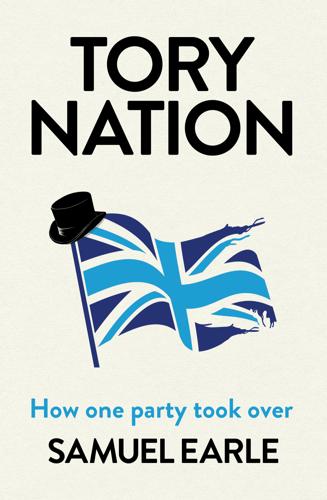
Tory Nation: The Dark Legacy of the World's Most Successful Political Party
by
Samuel Earle
Published 3 May 2023
In the same vein, Conservatives didn’t fight to preserve the Empire until the dying moments (and beyond), but in fact were always only ever working to raise colonised peoples to political maturity and then free them; Conservatives didn’t oppose the creation of the NHS, but in fact proposed it in the first place; and Conservatives called and championed the Brexit referendum out of a profound commitment to democracy, rather than to paper over their own problems and muzzle the threat of UKIP. These reframings are slowly absorbed into the folklore of the nation, assisted by two old adages that work in the party’s favour: not just that history is written by the victors (and the Tories are usually the victors), but also that newspapers write the first drafts of history (and most newspapers support the Tories). But no matter how many patriotic declarations and rhetorical overtures to ‘the British people’ Conservatives make, the party remains a fundamentally anti-democratic force. It is wedded to an unrepresentative political system that allows it to frame fine margin victories as towering majorities.
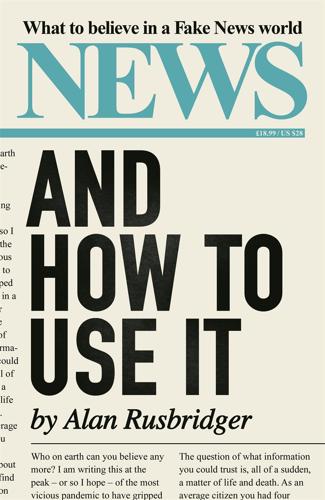
News and How to Use It: What to Believe in a Fake News World
by
Alan Rusbridger
Published 26 Nov 2020
One version may have ended in print, which is – obviously – impossible to mend invisibly. Another might exist in a version for iPad or Kindle. It may turn up in a LexisNexis commercial archive. All of these are difficult to mend individually without leaving an incoherent trail behind. Journalism is no longer simply the first draft of history. It is better to think of it as a draft of a number of drafts, with numerous Track Changes. If journalism prides itself as being some sort of record, it should probably think harder about what sort of record that is – and will be. J JOURNALIST Who or what is a journalist? The question becomes harder, not easier, to answer the more other people do stuff that looks and feels like journalism, and the more that journalism itself dilutes the clear purposes and methods which would make definitions simpler.
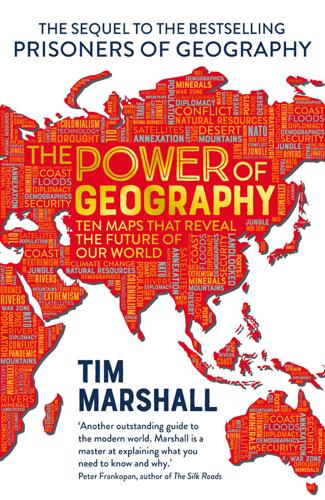
The Power of Geography: Ten Maps That Reveal the Future of Our World
by
Tim Marshall
Published 14 Oct 2021
I was in Pristina as the Russian armoured column rumbled down the main street in the early hours of the morning heading for Kosovo’s airport on the outskirts of town. I’m told President Clinton heard of their arrival, ahead of NATO’s troops, via my report ‘The Russians rolled into town, and back onto the world stage’. It was hardly Pulitzer Prize material, but as a first draft of history it did the job. The Russians had staked their claim to play a role in the biggest event of the year, and announced that the tide of history, which had been running against them, would now be challenged. In the late 1990s the USA was apparently unrivalled, the West seemingly triumphant in global affairs.
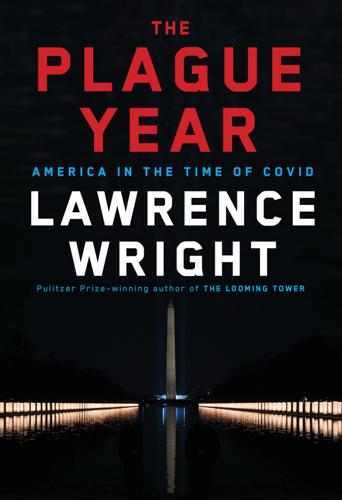
The Plague Year: America in the Time of Covid
by
Lawrence Wright
Published 7 Jun 2021
It is also part of the job to delve into intensely personal matters, to probe the fresh wounds of people still grieving, or to interrogate liars, criminals, and sociopaths. Those experiences are balanced by the joy of penetrating a layer of truth that has been hidden until those words were uttered, and noted, and recorded, then written into the first draft of history. * * * — When my editors at The New Yorker, David Remnick and Daniel Zalewski, first spoke to me about a major article on the pandemic, which this book grew out of, I considered that Covid-19 has deeply affected nearly every part of American society, including politics, race, science, the economy, and the culture at large.
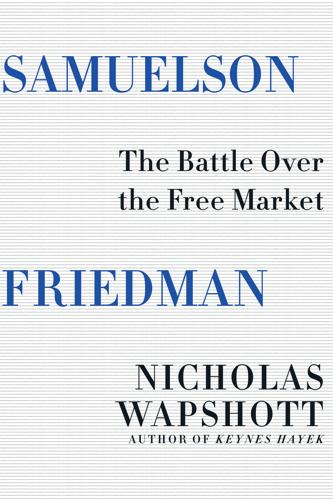
Samuelson Friedman: The Battle Over the Free Market
by
Nicholas Wapshott
Published 2 Aug 2021
Yet my liberal mind is not persuaded by a considerable number of conservative arguments.”5 For readers searching for the truth, Samuelson had an answer: “I define a truth to be that which at least two out of three Newsweek experts on economics are agreed upon.”6 And he suggested that readers who violently disagreed with his views or those of Friedman should calm down. “If you don’t like the economics you read in Newsweek today, wait a week: something different, maybe better, is sure to turn up,”7 he said. While pompous journalists like to elevate the importance of their mundane trade by suggesting that they are writing “the first draft of history,” all journalism, including column writing, is ephemeral. Who wants yesterday’s papers? It suited Samuelson to pretend that he had not been pitted against Friedman to maximize sensation. “I do not deem it my function to press my value judgments on those with different ethical views,” he wrote.
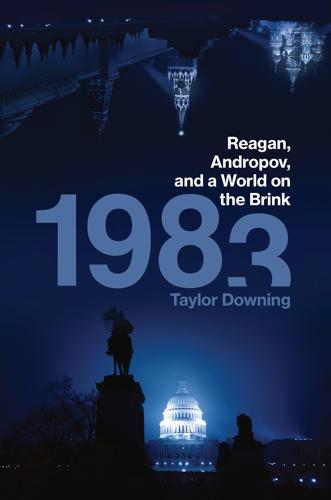
1983: Reagan, Andropov, and a World on the Brink
by
Taylor Downing
Published 23 Apr 2018
On the Cold War series in the mid-1990s a distinguished team of scholars from the US, the UK and Russia gave invaluable advice, viewed the cuts of each episode and checked every word of commentary.3 But when Henry and I started pre-production in 2007 and were looking for historical advisers we could find no one. Many specialists were unsure about what had taken place and how serious it had been. Most historians said to us, ‘If you find out what really happened, please come back and tell us!’ We felt it was still a blank canvas and that (to mix metaphors) we were writing a first draft of history. NATO was still a little embarrassed by the events. The CIA felt they would be accused of missing one of the most dangerous moments in the Cold War. And Russian military and intelligence officials did not want to admit how scared they had become. But a reasonable production budget allows for proper research.
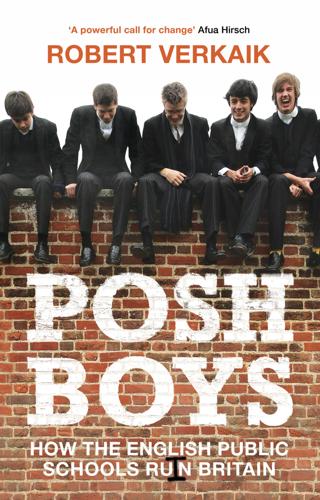
Posh Boys: How English Public Schools Ruin Britain
by
Robert Verkaik
Published 14 Apr 2018
Together with General Haig, the leader of the BEF from 1915 who became known as the Butcher of the Somme, he sent many men to slaughter. French’s obsession with cavalry charges against guns and Haig’s inability to understand the importance of the machine gun cost many lives while also lengthening the war. Still, it was the old boys who wrote the first draft of history in their poems and polemical prose. Their privileged positions in society allowed them to control the narrative, whether it was shaped by critics like Siegfried Sassoon (Marlborough) and artist Paul Nash (St Paul’s) or more idealistic voices such as Rupert Brooke (Rugby). Even the leading voices among the ranks of the conscientious objectors were privately educated.
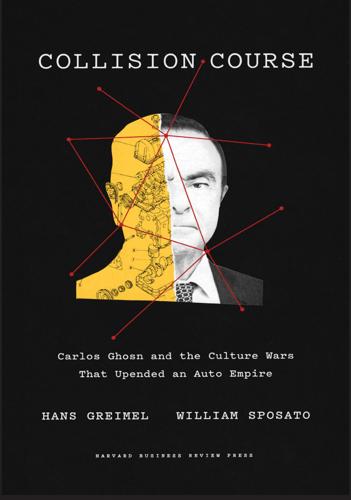
Collision Course: Carlos Ghosn and the Culture Wars That Upended an Auto Empire
by
Hans Gremeil
and
William Sposato
Published 15 Dec 2021
Former colleague Chang-Ran Kim and long-time friend Sadaaki Numata graciously agreed to reading the manuscript in its early form to help provide direction and feedback. In looking over what we’ve produced, it would not have been possible without the front-line reporting work of so many former colleagues at Reuters and the Wall Street Journal, who have been the true first drafts of history in explaining Japan, its economy, and the political forces that shaped so much of what took place. I must especially note the impressive chronicling of the last three decades by Linda Sieg of Reuters, who remains the go-to expert on all things Japan. In addition to all the names mentioned above, we must add our fact-checker Roni Greenwood at Girl Friday Productions, who took nothing for granted and helped us avoid embarrassment in more cases than we would like to ever admit.
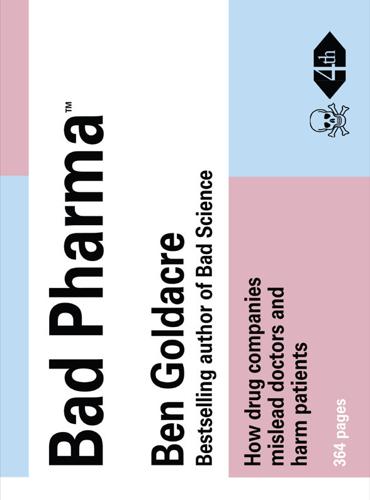
Bad Pharma: How Medicine Is Broken, and How We Can Fix It
by
Ben Goldacre
Published 1 Jan 2012
At the very least, tell us which academics were ‘guest authors’, who contributed nothing but their name, the illusion of independence, and the reputation of their university, in exchange for a cheque. Tell us how much money they were paid; but most importantly, tell us their names, so we know how to judge their other work. Because the medical academic literature isn’t like a newspaper: it’s not a transient first draft of history, or tomorrow’s chip wrapper. Academic papers endure. Many of the studies affected by ghostwriting will still be regarded as canonical, they will be widely cited, and their contents will be used to inform practice five, ten and twenty years from now. This is how evidence-based medicine works, and it’s how it’s supposed to work: we rely on the research that has been published in order to write textbooks and make decisions.
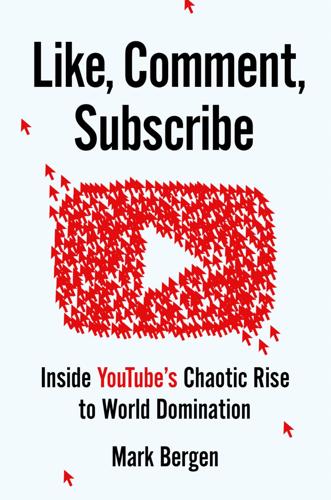
Like, Comment, Subscribe: Inside YouTube's Chaotic Rise to World Domination
by
Mark Bergen
Published 5 Sep 2022
Eventually, protesters using YouTube picked up on these cues and began their videos by framing the camera on morning newspapers (confirming the date) before panning up to a recognizable minaret (confirming the place). Little marveled. Storyful had become the new newsreel. “The archive of now,” he called it. “The internet of awesome.” Edward Murrow and Wolf Blitzer were no longer writing first drafts of history. Unknown YouTube accounts from Darayya were. YouTube seemed like a willing partner on this expedition. Although, in hindsight, signs of discord were there from the outset. When Storyful first laid out its process to staff at YouTube, Clinch heard a Google coder scoff at the proposal to have expert hands curate footage.
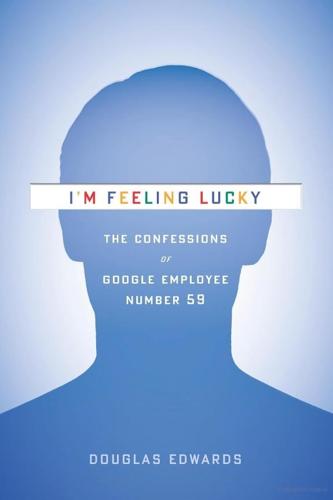
I'm Feeling Lucky: The Confessions of Google Employee Number 59
by
Douglas Edwards
Published 11 Jul 2011
Yet, despite our air of optimism, I couldn't help but notice a spreading stench of tar pit–scented doom. Over its century and a half, the Mercury News had layered on coat after coat of process, until whatever entrepreneurial spirit remained was obscured beneath the corporate craquelure of org charts and policy manuals. We saw newspapers as the first draft of history, and no one wanted to make missteps transitioning the historical record to the next mass medium. Every loose end and every blurry projection needed to be carefully wrapped up before our new product could be thrown onto the public's porch. We did manage to launch a Siliconvalley.com store stocked with logo items from well-known tech companies like Dell, HP, and NetObjects.

Spies, Lies, and Algorithms: The History and Future of American Intelligence
by
Amy B. Zegart
Published 6 Nov 2021
Bigelow kept using them, repeating the “based on first-hand accounts” mantra as she defended her film in the press.75 She even used them when she went on the comedy show The Colbert Report.76 It was a surreal moment: a filmmaker masquerading as a journalist telling a comedian masquerading as a news anchor that her fictional film masquerading as a documentary was a “first draft of history.” Under fire, Bigelow eventually claimed that Zero Dark Thirty was just putting it out there for others to debate the issues. As she wrote in the Los Angeles Times, “Those of us who work in the arts know that depiction is not endorsement.”77 Those of us who work in the academy know something else: too often, depiction is shoddy education.
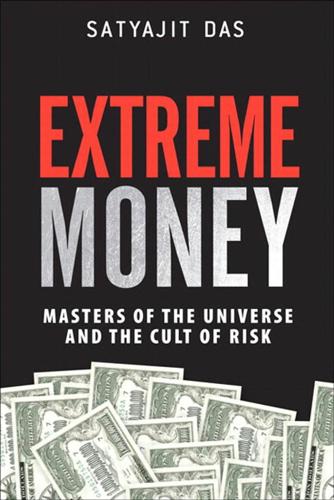
Extreme Money: Masters of the Universe and the Cult of Risk
by
Satyajit Das
Published 14 Oct 2011
Quoted in Vicky Ward (2010) The Devil’s Casino: Friendship, Betrayal and the High Stakes Games Played Inside Lehman Brothers, John Wiley, New Jersey: 1. 3. Nouriel Roubini and Stephen Mihm (2010) Crisis Economics: A Crash Course in the Future of Finance, Allen Lane, London: 3. 4. Bloomberg News (20 November 2008). 5. “First draft of history” (25 June 2009) The Economist. 6. Joseph Conrad (1995) Heart of Darkness, Wordsworth Editions, Ware: 82. 7. Justin Fox “What exactly is Nouriel Roubini good for?” (26 May 2010) HBR (http://blogs.hbr.org/fox/2010/05/what-exactly-is-nouriel-roubini.html). 8. www.imf.org/external/np/vc/2002/070202.htm 9.
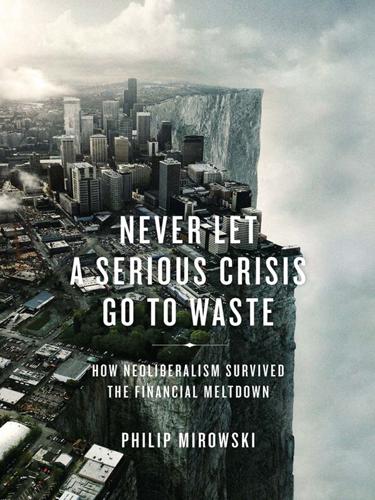
Never Let a Serious Crisis Go to Waste: How Neoliberalism Survived the Financial Meltdown
by
Philip Mirowski
Published 24 Jun 2013
Without waiting for the Commissioners’ insights into the causes of the financial crisis, Congress passed and the President signed the Dodd-Frank Act.”161 Of course, the obvious answer was that the FCIC was set up to fail from the outset; but that might reflect badly on Wallison’s willing participation. So instead he opted for an answer that shed some light on agnotology. He began by quoting Rahm Emmanuel saying “Never let a good crisis go to waste,” and then suggested that the real purpose of the report was to gain some control over the “first draft of history.” Wallison’s behavior demonstrated that the NTC appreciated the importance of venturing beyond the mere short-term partisan bickering of the first dissent, or the sloppy endless laundry list of the majority report, to providing a simple pithy narrative to contrast with the general cacophony of noise concerning the crisis.
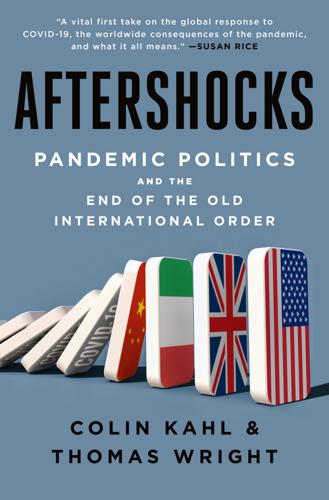
Aftershocks: Pandemic Politics and the End of the Old International Order
by
Colin Kahl
and
Thomas Wright
Published 23 Aug 2021
The United States should certainly seek to cooperate with rivals on shared threats, but we must also acknowledge the real limitations on such cooperation, amply demonstrated by Beijing’s behavior in response to the coronavirus. And America must prepare accordingly—by working more closely with other free societies and like-minded countries. WRITING A FIRST DRAFT OF HISTORY The two of us—Colin Kahl and Tom Wright—have been friends for over fifteen years. We were both trained as academics studying international relations, but we approached the subject from different angles. In the 1990s and early 2000s, Colin worked on how demographic and environmental stress can exacerbate civil and ethnic wars in the developing world.6 After opposing the U.S. war in Iraq, he spent the better part of a decade working on it as an academic, as a political advisor, and then as a government official.
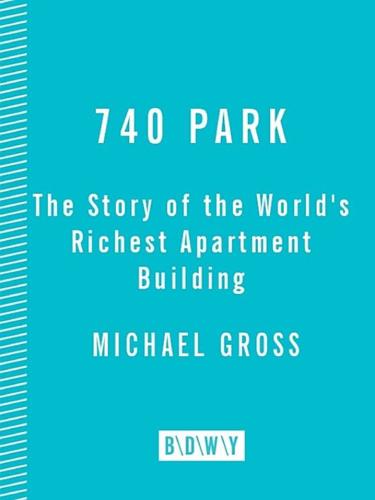
740 Park: The Story of the World's Richest Apartment Building
by
Michael Gross
Published 18 Dec 2007
I’d like to single out the New York Post, where the morgue is run by Laura Harris; the Daily News, run by the indomitable Faigi Rosenthal; and the Center for American History at the University of Texas at Austin, where Evan Hocker presides over the preserved clipping libraries of the New York Herald Tribune and the New York Journal-American. As newspapers are the first draft of history, whenever possible I have tried to confirm, correct, or clarify information gleaned from them elsewhere. Last but hardly least, I would like to thank each of the following, who either gave an interview, gave me information, or helped lead me to others who did. This list is both necessarily and accidentally incomplete.
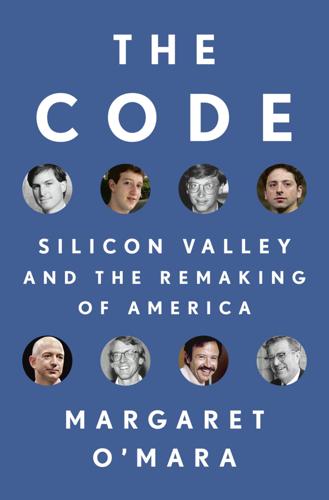
The Code: Silicon Valley and the Remaking of America
by
Margaret O'Mara
Published 8 Jul 2019
Thanks to the archivists and archives of Stanford University, the University of California, Harvard University, the University of Washington, the Computer History Museum, the Museum of History and Industry (MOHAI) Seattle, the Agilent History Center, the Palo Alto Historical Association, History San José, and the presidential libraries of the U.S. National Archives system for preserving and cataloguing the history of this relentlessly present- and future-tense industry and place. I also am indebted to the journalists in the Bay Area, Seattle, and nationally who covered the technology beat from the 1970s until today; your first drafts of history made my second draft possible. The following institutions and fellowships provided time and resources that made this book possible: the American Council of Learned Societies’ Frederick Burkhardt Fellowship for Recently Tenured Scholars; the Stanford Center for Advanced Study in the Behavioral Sciences (CASBS) Fellowship; the Stanford Program for the History of Science; the Stanford University Department of History; the Walter Chapin Simpson Center for the Humanities at the University of Washington; Lenore Hanauer and the Hanauer History Funds of the University of Washington; and the Keller Fund of the University of Washington Department of History.
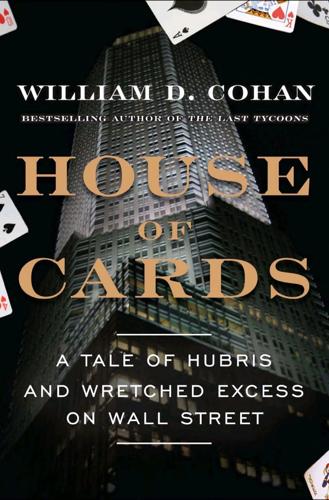
House of Cards: A Tale of Hubris and Wretched Excess on Wall Street
by
William D. Cohan
Published 15 Nov 2009
“I was thinking, ‘I'm going to poke around in this more,’” he said, “but then I was thinking, ‘This is strange.' This is like a situation where you can abuse your position as a reporter. When you're at Fortune, you have to do stuff right. When you're at the New York Post, you have to be there first and fastest. At Fortune, you write the first draft of history, and you have to get it right and you have to be consistently right. I'm thinking, ‘I don't really want to screw with this company'—I don't want to spread rumors. I don't want to become part of the story. I don't want to hurt people unnecessarily. I'm an aggressive guy and I'll pick fights with anyone or anything, but there's a right way of doing my job and there's a wrong way.
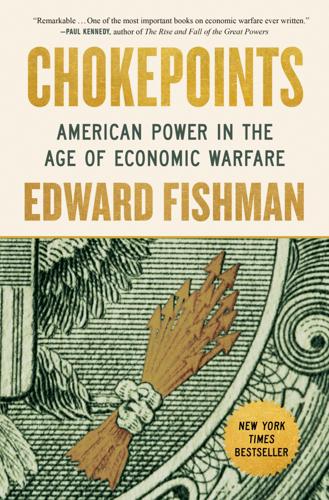
Chokepoints: American Power in the Age of Economic Warfare
by
Edward Fishman
Published 25 Feb 2025
In addition to my interviews, I relied on a wealth of publicly available sources, including books, newspaper articles, speeches, testimonies, economic data, academic articles, and government documents and press releases, all of which are cited in the endnotes. I am grateful to the scholars, journalists, and other individuals who produced these materials. To avoid confusion, when quoting from these sources, I have taken the liberty of standardizing spellings (such as substituting “Kyiv” for “Kiev”) and fixing typos. This book is a first draft of history. Future scholars will no doubt add to its account and its conclusions, especially as further documentary evidence becomes available. My hope is that it inspires more people to try to make sense of the Age of Economic Warfare, which—despite the degree to which it has shaped the history of the past two decades—remains underexplored.
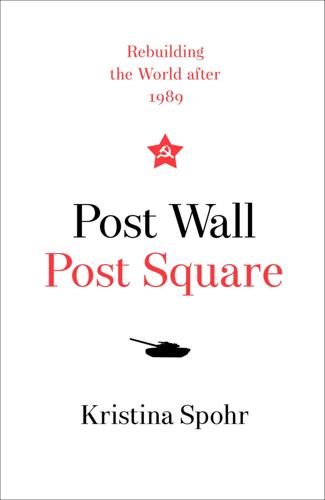
Post Wall: Rebuilding the World After 1989
by
Kristina Spohr
Published 23 Sep 2019
Now, a year later, with Kuwait liberated, he proclaimed ‘Our policies were vindicated,’ which showed, he said, that ‘much good can come from the prudent use of power. And much good can come of this: a world once divided into two armed camps now recognises one sole and pre-eminent power, the United States of America.’ Bush had written his first draft of history.[15] It was also his scenario for the future – because he was sure that America could not rest on its laurels. The transformation of Eastern Europe and the collapse of the Soviet Union had generated a wave of debate about the future global role of the United States. And this intensified in the New Year as the country geared up in earnest for the presidential election campaign, with many voices inclining towards a new isolationism.
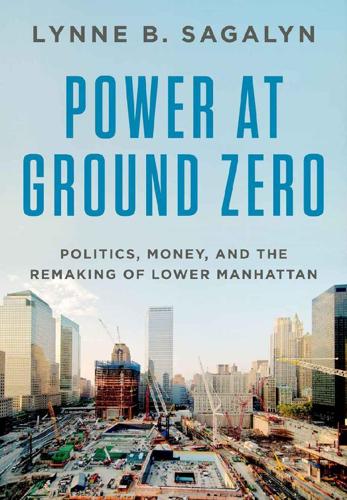
Power at Ground Zero: Politics, Money, and the Remaking of Lower Manhattan
by
Lynne B. Sagalyn
Published 8 Sep 2016
This was an inversion of a museum’s usual role and the result was questionable. Though the 9/11 museum “may be breaking new ground both in its ambition’s scale and the ways it falls short,” he went on to say, “it left little room for more elaborate and public considerations; it doesn’t even try to offer a rough first draft of history.” He objected to the “almost fetishistic” preoccupation with the private, to the exclusion of the public, yet considered this flaw as part of a broader context common to contemporary memorials “having become democratic signposts demanding attention for the dead in a crowded political marketplace where there is no clear notion of a public realm.”21 With so little time for historical reflection having passed before the embarking on the memorial mission, the vaulted scale of the museum was open to criticism among those who were not yet ready to unquestionably agree that it matched the horrific scale of the event.